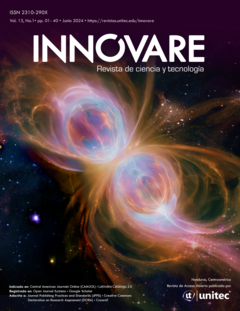Incorporation of geospatial tools in medical training
DOI:
https://doi.org/10.69845/innovare.v13i1.338Keywords:
Informatics, Information science, Information system, Medical education, PlanetAbstract
In the face of the complex and multifactorial emerging global health threats of the 21st century, it is urgent to define a new medical training strategy in accordance with the needs of this time. Physicians must be prepared to face the particular challenges that arise in Latin America and the Caribbean, such as climate change, inequities related to a limited health system infrastructure, exposure to air and water pollution, the risk of transmission of infectious diseases, including those of a zoonotic nature, and health determinants that impact the acute and chronic health of populations.
Downloads
1270
PDF (Español (España)) 82
Published
How to Cite
Issue
Section
License
Copyright (c) 2024 Helena J. Chapman, Carlos Barboza Pizard, Reyna M. Durón

This work is licensed under a Creative Commons Attribution-NonCommercial-NoDerivatives 4.0 International License.




